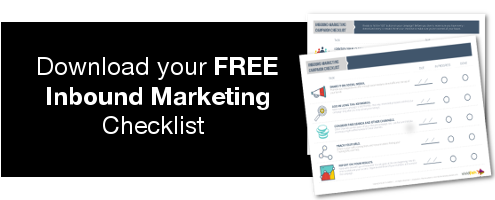9 Things Your Website Should Do (And 3 It Shouldn’t)

When it comes to your website, there are things that should be done and things that shouldn’t ever happen in order to achieve maximum efficiency. We deliver outstanding websites through up-to-the-minute industry knowledge and decades of shared experience, ensuring that our customers convert leads into sales. This is achieved by following the rules below, which you really should take on board.
SHOULD
- Every page should have a clear purpose and an achievable goal, otherwise what’s the point in it being there? This could range from informing visitors of a service, to providing contact details, to encouraging them to share content such as blog posts, infographics and resources. If a page doesn’t have a strong reason for existing, you’re simply wasting people’s time.
- Earlier this year the UK reached the point where over 50% of web searches were carried out on mobile devices. Add to this that Google considers mobile friendliness a major ranking factor and it’s clear that your website should have responsive design and a mobile version. Without this, many visitors will become frustrated and leave your site prematurely, which could cost you a sale.
- Your content should be unique, engaging and well written. If it’s “recycled” from other sites, lengthy and dry, your visitors will lose interest very quickly.
- Your website should help the visitor to achieve their reason for visiting, therefore simple, clear and effective navigation is paramount. All it takes is a hidden menu or unclear links and you’ll find that your metrics are a shadow of what they could be.
- White space should be used liberally. A cluttered webpage is ugly at best, and the worst-case scenario is that visitors will leave within moments of arriving due to being overwhelmed.
- You should always provide obvious links to your social media. Whilst someone may visit your website for a particular reason right there and then, by following your channels they’ll have access to your news, portfolio and brand on a regular and long-term basis. Social sharing buttons are also very useful, as they allow people to share specific content with their followers directly from your website.
- Your business name should always be included as text, not just images. Whilst it’s important for visitors to recognise your logo, without a text version Google won’t be able to direct brand-related search traffic to your site.
- Clear calls to action are crucial. You should always lead your visitors to the next step, whether it’s finding out more about a service, downloading a resource, signing up for an event or getting in touch. Without a call to action, each webpage is pretty much a dead end.
- Your website is top-notch and visitors want to get in contact… but how do they do it? You should always make contact details easy to find, which could mean adding info to every blog post and the site header or footer as well as a dedicated contact page.
SHOULDN’T
- Your website shouldn’t send people away to other sites. This may sound obvious, yet a lot of content might need to reference sources, partners or third parties. If you do need to include external links, make sure that they open in a new window or tab so that your website remains in the background, otherwise the visitor may become distracted and forget all about you.
- Broken links shouldn’t exist, simple as that. If you move webpages around or rename a blog post, make sure that you rectify any links that point to them. Broken links are frustrating, unprofessional and significantly reduce the fluidity of the user experience.
- You shouldn’t under any circumstances use content copied from elsewhere on the web. Aside from it being very naughty to steal from others, Google has become extremely smart and is known to punish websites with plagiarised content by reducing their search rankings.
SHOULD #10
If your website isn’t doing everything it can to inform, engage and drive traffic, you could be missing out on new customers and substantial revenue. You should definitely contact us on 0800 998 7502 or use our contact form and book yourself a FREE website audit, which will tell you exactly what’s working and what can be improved.

Comments